Top Tips for Saving Money While Camping
Sep 05, 2023
We understand that we can't do this for everyone, but in the meantime, we can brainstorm some cost-saving ideas. Here are some ways you can save money and become a Happy Kamper too:
-
Camp in Off-Peak Seasons: Camping during popular holiday weekends or peak seasons can be more expensive. Consider going camping during off-peak seasons when campground fees are usually lower. This also means potentially saving on gas by avoiding long weekend traffic congestion.
-
Share/Rent/Borrow Camping Gear: If you plan to go camping with friends or family, consider sharing camping gear instead of everyone buying their own. This way, you can split the costs and save money. Instead of purchasing new, expensive camping gear, check if you can borrow or rent equipment from friends, family, or local outdoor gear rental services. You can also explore social media channels, websites like Kijiji and VarageSale, or local secondhand sales for camping gear. Always be cautious when meeting strangers for purchases.
-
DIY Camping Equipment: Get creative and make your own camping equipment. For example, you can create a homemade camp stove using tin cans or craft your camping lantern using a mason jar and a candle. Many DIY camping gear tutorials are available online on platforms like YouTube and Pinterest. These DIY hacks can also come in handy during emergencies or unexpected situations.
-
Camp at Free or Low-Cost Campsites: Research and explore free or low-cost campsites in your area. Canada has various locations where you can find free campsites, often on Crown Land. Some national and provincial parks offer backcountry camping options, and forest service recreation sites are often located in remote areas and offer free or low-cost camping. Always check with local authorities for up-to-date information and any restrictions or regulations.
-
Cook Your Own Meals: Instead of eating out or buying pre-packaged meals, bring your own food and cook meals at your campsite. Prepare easy-to-make meals that require minimal ingredients. Consider making freezer portions when you do your grocery shopping, and set portions aside for camping trips. This reduces the need to buy additional supplies, leaving more pocket change for treats at your campsite.
If you need recipe and meal Ideas, we've got our own cookbook:
Check it out here -
Forage for Firewood: If campfires are allowed in your camping area, gather firewood from fallen branches or driftwood on the beach rather than buying it from vendors. Ensure you follow local regulations and guidelines for firewood collection.
-
Opt for Reusable Camping Essentials: Invest in reusable camping essentials like water bottles, utensils, and storage containers to reduce the need for disposable items, saving you money in the long run and benefiting the environment.
-
Plan and Budget in Advance: Create a camping budget and stick to it. Plan your expenses, prioritize essential items, and avoid unnecessary spending. Tracking your expenses and planning ahead will help you allocate your funds more effectively.
Here's a grocery list for camping, with items commonly found at your local dollar store:
- Canned beans (variety of your choice)
- Instant ramen noodles
- Canned soup or broth
- Canned meats (tuna, chicken, or spam)
- Peanut butter/Jam
- Bread or tortillas
- Granola bars or cereal bars
- Trail mix or nuts
- Canned vegetables (corn, peas, or green beans)
- Instant oatmeal packets
- Powdered milk or shelf-stable milk
- Condiments (ketchup, mustard, mayonnaise)
- Cooking oil or spray
- Salt and pepper
- Marshmallows (for roasting)
- Instant coffee or tea bags
- Water or water purification tablets
- Disposable plates, cups, and utensils (opt for reusable containers/packaging and plastic plates if possible)
- Aluminum foil
- Ziplock bags
- Matches or lighters
- Trash bags
- Batteries/Flashlights/Tea Candles
Remember, camping is about enjoying nature and quality time with loved ones. Focus on creating memorable experiences rather than relying on expensive gear or accommodations. Your soul needs this getaway, and we hope these suggestions help. Share your fun adventures and cost-saving camping hacks with us!



